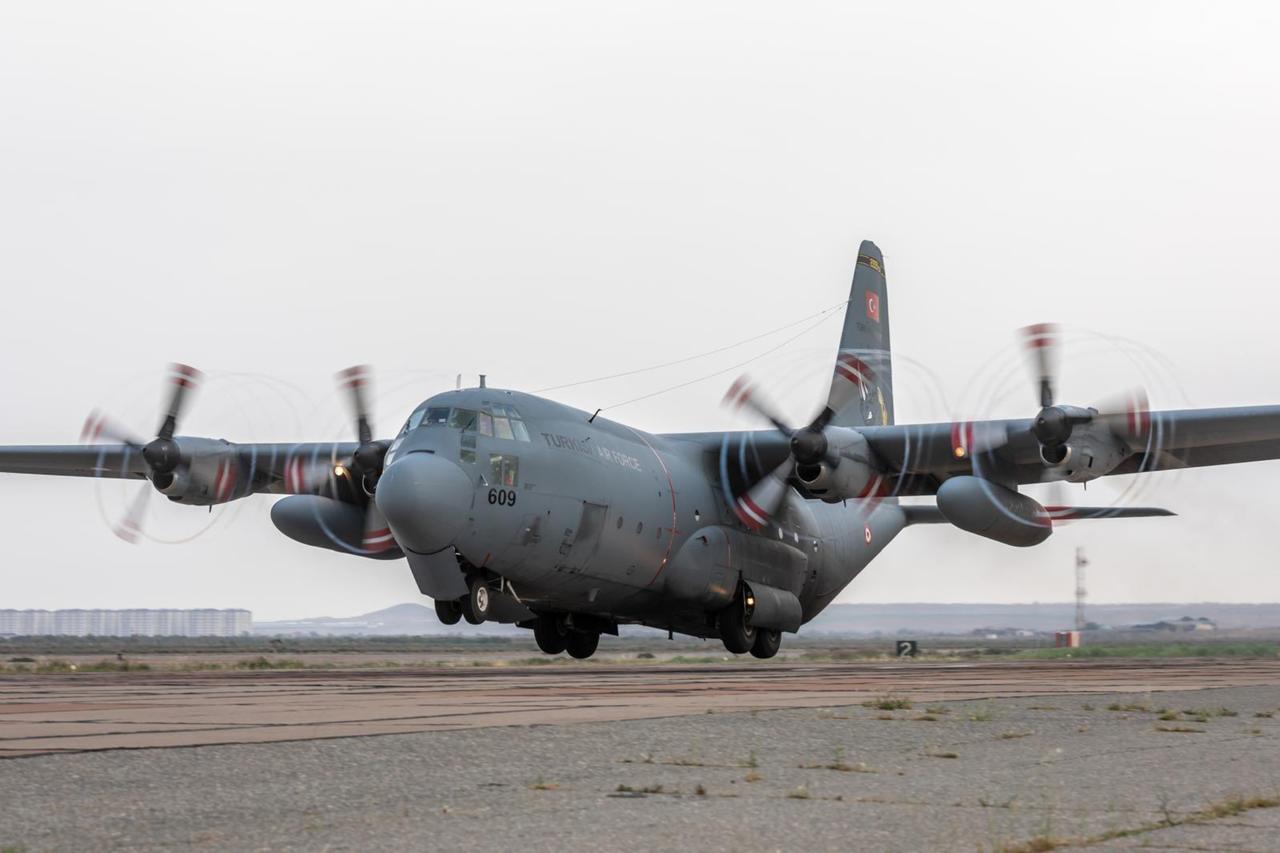
A Turkish C-130 military cargo plane crashed Tuesday near the Georgia–Azerbaijan border while en route from Azerbaijan to Türkiye, according to a statement from the Turkish Defense Ministry.
The aircraft, part of Türkiye’s long-standing air bridge with its close ally Azerbaijan, went down in a region where military and logistical flights have become a daily routine amid deepening defense cooperation between the two nations.
The ministry confirmed that the crash site was located near the border region and that joint search and rescue operations began immediately in coordination with Azerbaijani and Georgian authorities.
In a later update, the Defense Ministry said 20 personnel, including flight crew members, were on board the aircraft at the time of the crash.
Casualties were later confirmed as Türkiye’s National Defense Ministry on Wednesday released the names of 20 service members killed in the military cargo plane crash near the Azerbaijan-Georgia border.
Lockheed's C-130E Hercules, a long-serving workhorse of military fleets worldwide, is known for its reliability even under challenging conditions. The model’s strong safety record has led experts to suggest the cause may not be purely mechanical, though investigations remain in the early stage.
The Turkish Defense Ministry also said an investigation is underway into the crash. The central question now facing Turkish authorities is what caused it, a technical malfunction or severe weather.
Aviation experts have noted that C-130 aircraft rarely experience fatal failures and are built to withstand both combat and adverse conditions.
Turkish technicians and investigators are currently examining debris at the crash site to determine whether an internal explosion or mechanical failure occurred.
The incident occurs at a time of heightened geopolitical sensitivity across the region. Türkiye and Azerbaijan have deepened their military cooperation in recent years, especially following the 2020 Karabakh War.
The area around the Georgia–Azerbaijan border is not only a key logistical artery for defense coordination but also a space where multiple regional powers—Russia, Iran, and Western actors—maintain competing interests.
But the crash of a C-130 aircraft in this region is not the first of its kind.
On April 13, 1982, a supply flight from Erzurum Airport to Incirlik Air Base belonging to the U.S. Air Force crashed, killing all 27 people on board.
Most recently, on July 4, 2021, a C-130 belonging to the Philippine Air Force, and in 2014, a similar model of military transport aircraft belonging to the Algerian Air Force, crashed.
For the Turkish military, flights between bases in Azerbaijan and Türkiye have become routine since the signing of the Shusha Declaration in 2021, which formalized defense ties between the two nations.
Personnel frequently travel between Baku, Ganja, and Turkish bases as part of joint exercises and logistical operations.
The downed aircraft was reportedly flying a well-established route, operated by experienced crew members familiar with the region’s weather and geography. This familiarity adds to the growing sense of mystery surrounding the crash, reinforcing the need for a thorough, transparent investigation.
Officials emphasized the importance of restraint until the official investigation concludes, noting that premature speculation could cloud both the technical inquiry and potential diplomatic steps to follow.
While the focus today remains on honoring those lost, the broader implications—technical, political, and geopolitical—are likely to dominate Ankara’s agenda in the days ahead.